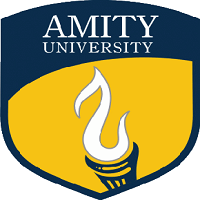VIT Chennai B.Sc. Admissions 2025
#10 in India by NIRF Ranking | Institution of Eminence by Govt. of India | Scholarships Available
BSc Optometry is an undergraduate degree programme that provides knowledge of the vision of the human eye, visionary disorders, and treatments. The BSc Optometry course duration is of four years divided into three years of academics and one year of the compulsory internship programme. Candidates with 10+2 in science can apply for the BSc in Optometry course.
Admission is provided based on candidates' performance in the entrance examination conducted by the college or state or national level examination authorities. There are various career opportunities available for students after completion of this Optometry degree, such as opticians, refractions, ophthalmic assistants, and optometrists.
The BSc in Optometry programme provides training on examining eye conditions and identifying the causes of hindrance in clear vision. In the BSc in Optometry course, students learn to treat eye conditions such as low vision and binocular vision. The total BSc Optometry fee structure usually falls in the range of Rs. 4,000 to Rs. 3.5 lakhs.
| Particulars | Values |
|---|---|
Degree Name | BSc Optometry |
Degree Type | Undergraduate |
Degree Duration | Four years |
Eligibility Criteria | 10+2 |
Admission Process | Direct admission or based on the entrance examination |
Entrance Exam | CUET UG |
Course Fees | Rs. 4,000 to Rs. 3.5 lakhs |
Average Salary | Rs. 3 LPA |
Job Profiles | |
Top Recruiters | Essilor, Carl Zeiss, GKB, Government Eye Department, Lenskart, AIIMS, Centre For Sight |
BSc Optometry eligibility criteria vary from one college to another. Below we have provided the details of the BSc Optometry eligibility criteria considered by most colleges.
The admission process for enrollment in the BSc in Optometry course varies from one institute to another. Most colleges conduct entrance examinations to provide admissions in BSc Optometry. In a few colleges, BSc Optometry admissions are provided on the marks obtained in the 10+2. The admission process typically involves the following.
Students can be admitted to BSc in Optometry programme based on their 10+2 marks. However, many colleges provide admission based on the results of CUET UG examinations.
| Exam Name | Level | Conducting Body | Exam Schedule |
|---|---|---|---|
National | NTA |
BSc in Optometry cut-off is the basic criteria for setting the minimum scores acquired by students to be considered for admission to the top colleges. Therefore, individuals acquiring good scores and percentages or ranking under the set limit in the entrance examination can be admitted to a BSc Optometry course in any college.
Individuals enrolled in BSc in Optometry are provided training to acquire the skills to work in the healthcare industry and provide support to physicians in the treatment of vision problems. We have provided below a list of skills that are required for pursuing a BSc in Optometry.
The BSc optometry subjects list is similar, though the curriculum sometimes differs from one college to another. We have discussed the BSc Optometry syllabus of RGUHS, Bangalore.
Year 1 | |
General Anatomy & General Physiology | Basic Biochemistry & Nutrition |
Ocular Anatomy, Ocular Physiology & Biochemistry | Physical & Geometric Optics & Principles of Lighting |
Computer Basics & Computer Programming | Functional English & Communications |
Mathematics | Kannada |
Basic Accountancy | - |
Year 2 | |
Optometric Optics & Dispensing Optometry | Clinical Examination Of Visual System & Optometric Instruments |
Visual Optics | Pharmacology, Microbiology & Pathology |
Medical Psychology | Clinics |
Year 3 | |
Contact Lenses | Systemic & Ocular diseases |
Low Vision Aids & Geriatric Optometry | Practice Management, Law in Optometry & Occupational Optometry |
Research Methodology & Biostatistics | Paediatric Optometry, Advances In Optometry & Binocular Vision |
Clinics & Special Clinics | - |
Year 4 | |
Clinical posting & Speciality postings | - |
The BSc Optometry fees depend on various factors and vary from one institute to another. The management of the college or university plans and decides on the BSc Optometry fee structure.
BSc Optometry fee structure includes various charges such as tuition fees, academic fees, and other charges. The average BSc optometry course fees range from Rs. 4,000 to Rs. 3.5 lakhs.
Students enrolled in the BSc Optometry course find numerous opportunities ahead in eyecare practice. Optometric practices have been dynamic and transforming over the years. There is a rising demand for skilled eye care professionals to provide treatment to patients with visionary defects or problems.
After successful completion of B.Sc Optometry, individuals can further pursue M.Optom. For an academic career or research career, they may also opt for a PhD to offer lectures in colleges and universities as well as conduct independent research.
After completing a BSc in the Optometry degree, graduates have a lot of job opportunities. Below, we have discussed the career options available for the students who have completed BSc in Optometry course.
Optometrist: An optometrist is a trained eye care professional responsible for treating visual defects. He or she conducts eye tests to diagnose a patient's vision.
Optician: An optician is responsible for taking prescriptions given to customers by an optometrist or ophthalmologist for eyeglasses or contact lenses. He or she takes the measurements of the eyes and face of the customer to determine the distance between pupils.
Ophthalmic Medical Technician: An ophthalmic medical technician assists an ophthalmologist. He or she collects information from patients and updates the medical record.
Refractionist: Refractionist is a skilled professional in the laws of refraction. A refractionist is responsible for determining the accurate measurement of refraction in his or her regular practice to provide support in the treatment of vision of patients.
Some of the top recruiters that hire BSc in Optometry (Bachelor of Science in Optometry) graduates are mentioned below:
BSc in Optometry is designed to train aspiring individuals to serve in the healthcare industry and provide treatment to visionary problems of patients. Students enrolled in the course become competent to provide eye care services to optometrists, opticians, refractionists, and ophthalmic assistants.
BSc Optometry has higher career prospects with the increasing demand for skilled eyecare professionals in both urban and rural locations of the country to treat the vision problems of patients.
The salary offered to graduates of BSc Optometry varies depending on numerous factors. Individuals’ key skills and performance play a crucial role in a good salary package. We have provided the salary for the BSc Optometry graduates.
| Job Profiles | Average Salary |
|---|---|
Optometrist | Rs. 3.3 LPA |
Optician | Rs. 2.8 LPA |
Ophthalmic Medical Technician | Rs. 2.7 LPA |
Refractionist | Rs. 3 LPA |
Source: Ambition Box
In India, many colleges provide B.Sc Optometry programmes. The admissions process for the BSc Optometry programme is based on both merit and entrance examinations. The top B Sc Optometry colleges in India and their fees are listed below.
Colleges | Fee Structure |
|---|---|
Rs. 2.24 Lakhs | |
- | |
Rs. 2.90 lakhs | |
- | |
Rs. 1.50 lakhs | |
Rs. 2.60 Lakhs | |
Rs. 2.16 Lakhs | |
Mahatma Gandhi University of Medical Sciences and Technology, Jaipur | Rs. 1.50 Lakhs |
Rs. 3.13 Lakhs | |
- |
There are both private as well as government colleges in India. The management of the college plays a crucial role in the functioning structure and facilities provided to students and staff in the college. We have provided the list of top private B.Sc. Optometry colleges in India and course fees.
Colleges | Fee Structure |
|---|---|
MMU Mullana | Rs. 2.24 Lakhs |
- | |
Rs. 4.80 Lakhs | |
Medical Trust Institute of Medical Sciences, Cochin | - |
Rs. 5.00 Lakhs | |
Om Sterling Global University, Hisar | Rs. 2.60 Lakhs |
Rama University, Kanpur | Rs. 2.16 Lakhs |
Mahatma Gandhi University of Medical Sciences and Technology, Jaipur | Rs. 1.50 Lakhs |
The Apollo University, Chittoor | Rs. 3.13 Lakhs |
MAMC Agroha | - |
Many government colleges offer BSc in Optometry with lower fees compared to private colleges. Below, we have compiled a list of some of these colleges.
Colleges | Fee Structure |
|---|---|
Rs. 49,580 | |
Rs. 3.06 lakhs | |
Rs. 2.55 lakhs | |
Rs. 64,500 | |
- | |
- | |
Rs. 1.71 lakhs | |
- |
Individuals are required to complete 10+2 in physics, chemistry and biology with a minimum of 50 per cent of marks to enroll in B.Sc Optometry.
The BSc Optometry fees vary according to the institution. The average BSc Optometry fees range from Rs. 4,000 to Rs. 3.5 lakhs.
The average salary offered to graduates of B.Sc Optometry is around Rs. 3.0 LPA.
The BSc Optometry course duration is four years, which includes three years of studying the academic curriculum of college and one year of internship.
The possible career options for B.Sc Optometry graduates are Optometrist, Optician, Ophthalmic Assistant, Refractionist, Professor or Lecturer.
A B.Sc. in optometry and B.Optom. both are similar academic courses. A BSc. Optom. is offered in science discipline while B.Optom. is a specialised undergraduate degree course in optometry.
The major subjects of B.Sc. Optometry include: Ocular Anatomy, Ocular Physiology, Ocular Optics, Ophthalmic Optics & Dispensing Optics, Ocular Disease.
The minimum required qualification for M.Optom. is successful completion of a bachelor’s degree in optometry.
Hello there,
You can access AIIMS BSc Nursing previous year question papers from 2020 to 2024 in PDF format with expert solutions through the following resources:
Careers360
: They offer downloadable PDFs of AIIMS BSc Nursing question papers from 2020 to 2024, complete with solutions.
Careers360 Medicine
Testbook
: Offers a collection of solved AIIMS BSc Nursing questions with detailed explanations, which can be beneficial for practice.
(https://testbook.com/questions/aiims-bsc-nursing-questions--664b0622586c174d4f6e90a2?utm_source=chatgpt.com)
YouTube Playlist : For visual learners, this playlist contains videos discussing previous year question papers and solutions. (https://www.youtube.com/playlist?list=PL34JCRWW30yfJGgz-jgZAuCuifb32Lpiz&utm_source=chatgpt.com)
Practicing these papers will help you understand the exam pattern, question types, and difficulty level, thereby enhancing your preparation for the AIIMS BSc Nursing entrance exam.
I hope this answer helps you. If you have more queries, feel free to share your questions with us, and we will be happy to assist you.
Thank you, and I wish you all the best in your bright future.
Hii,
The fee for B.Sc. Nursing at Bibi Halima College of Nursing and Medical Technology, Srinagar, is not clearly listed in available sources. Generally, private colleges charge between INR 1,00,000 to INR 6,00,000 for the entire 4-year course.
For exact fees, you should contact the college directly at their address: Shireen Bagh, Kaka Sarai, Srinagar, or check their official website. Application fees may range from INR 500 to INR 1,500.
The official website for Bibi Halima College of Nursing and Medical Technology, Srinagar, is www.bhcnmt.in (http://www.bhcnmt.in) .
Hii,
A B.Sc. Botany degree typically covers plant biology, ecology, genetics, and environmental science. Plant Physiology, Plant Taxonomy, Plant Biotechnology, Ecology, and Ethnobotany are some of the specializations available at different colleges.
The entrance examinations vary each university. Some colleges need an entrance exam for admission, while others accept students based on their previous academic performance. For correct information, check the prerequisites of the respective university.
Azim Premji university and OP Jindal global university cater to different student profiles and interests. Students seeking a mission-driven,socially conscious education with a focus on liberal arts and sciences should prefer APU, while those aiming for global education with strong career prospects and a focus on research might find JGLS more appealing.
The fee structure for a Bsc course in Radiology can vary significantly depending on the college and course duration but can range from INR 4,800 to INR 6.4 Lakh.
For example,DY Patil Pune offers a 4-year-course with a total tuition fee of INR 3,00,000 while MGM School of Biomedical sciences,Navi Mumbai offers a similar 4-year-course for INR 3,72,500.

Ranked amongst top 3% universities globally (QS Rankings)

Ranked #46 amongst Universities in India by NIRF | 1900+ Students Placed | 94% Placement | 633+ Recruiters | Last Date Extended to 30th April. Apply Now!

NAAC A+ Accredited| Ranked #24 in University Category by NIRF | Applications open for multiple UG & PG Programs
Industry-Relevant Curriculum tailored for careers in Science, Research, and Technology.
NAAC A++ Accredited | NIRF 2024 ranked 42nd among Indian universities| 150+ Multidisciplinary Programs | Centre for Career Enhancement
Ranked #1 Among all Private Indian Universities in QS Asia Rankings 2025 | Scholarships worth 210 CR